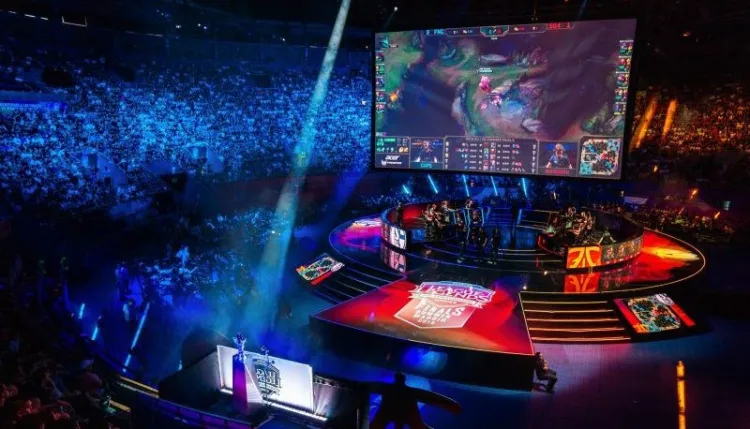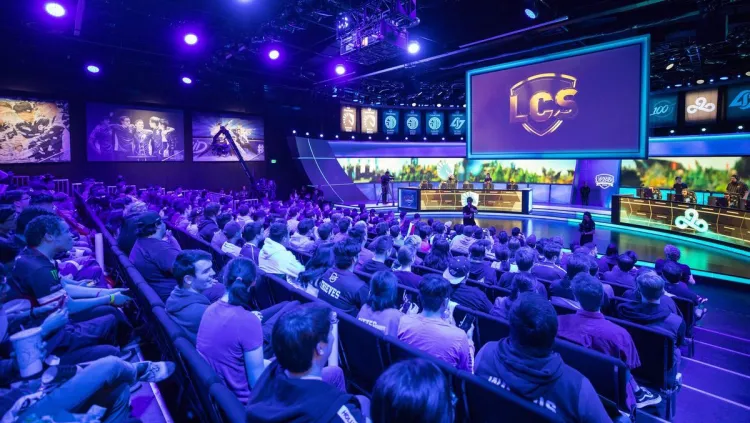The Future of Esports: How Technology Is Driving Growth and Innovation
The story of esports is a captivating tale of evolution. What began as small, local gaming competitions has rapidly transformed into a worldwide spectacle with millions of fans.
This article delves deep into the journey of esports, tracing its humble origins, its explosion into the mainstream, and the profound impact it has left on global culture. By the end of this read, you’ll appreciate not just the games, but the passion, dedication, and strategy that form the backbone of the esports world.
The Humble Beginnings of Esports
Esports, in its infancy, was nothing more than a congregation of gaming enthusiasts competing for fun. This section delves into the initial days of esports, understanding its grassroots movements and the catalysts that pushed it into the limelight.
Arcades and Local Tournaments
In the early days, gaming was largely localized to arcades. Here, competitive spirit was born as players vied for top spots on leaderboards. These arcades became the breeding grounds for the first local gaming tournaments, where participants battled for not just fame, but the coveted title of being the best in their locality.
Technology’s Role in Propelling Growth
It is undeniable that technological advancements have played a pivotal role in the rise of esports. With better gaming infrastructure and increased accessibility, the stage was set for a global gaming phenomenon.
As many esports fans are also sports fans, you might be anticipating the launch of North Carolina sports betting. When this happens, you can bet on your favorite teams at no less than 12 sportsbooks. Betting on esports will not be available, but who knows what the future holds.
The Internet and Online Gaming
The advent of the internet allowed players from different parts of the world to connect and compete. Online multiplayer games became arenas for showcasing skills, and with platforms to stream these matches, a spectator sport was born.
The Rise of Professional Players and Teams
With the growing popularity of esports, it was only a matter of time before it became more than just a hobby. This section delves into the emergence of professional players and teams that took gaming to a whole new level.
Gaming as a Career
For many, gaming transformed from a pastime into a lucrative career option. Players began dedicating hours to hone their skills, leading to the birth of full-fledged gaming teams and sponsorships, signaling the commercialization of esports.
The Impact of Big Money and Sponsorships
As esports continued to grow in popularity, it caught the attention of major corporations and investors. This influx of money and sponsorships led to bigger tournaments, substantial prize pools, and increased media coverage.
The Evolution of Gaming Tournaments
The addition of substantial investments led to tournaments being conducted on a grander scale, with world-class facilities and international media coverage. These events started drawing thousands of attendees and even more online viewers.
Esports and Mainstream Media

The relationship between esports and mainstream media has been symbiotic. While esports benefited from the exposure, mainstream media tapped into a younger, tech-savvy audience.
Televised Esports Events
Major TV networks recognized the potential of esports and began broadcasting major tournaments. This bridged the gap between traditional sports fans and esports enthusiasts, further cementing its place in popular culture.
The Cultural Impact of Esports
Beyond the games and the competition, esports has had a significant impact on global culture. It has influenced fashion, music, and even how we socialize.
Esports in Pop Culture
From music videos to movies, esports elements have found their way into various facets of pop culture. Merchandise, collaborations, and even dedicated esports bars speak volumes about its cultural significance.
From thrilling competitive matches to the engaging narratives of professional players and teams, the esports scene provides an immersive experience that’s changing the way we perceive gaming.
The Future of Esports
Esports isn’t a fleeting trend. Its consistent growth and adaptability suggest a promising future filled with innovations, bigger tournaments, and an even wider global reach.
New Frontiers and Opportunities
With technological advancements like virtual reality and augmented reality, esports are poised to explore new frontiers. This, combined with the inclusion of esports in events like the Olympics, presents exciting opportunities for the industry.
Challenges and Concerns
Like any major industry, esports has faced its share of challenges. From concerns about player health to issues of inclusivity, it’s crucial to address these to ensure sustainable growth.
Navigating the Hurdles
While esports offers numerous opportunities, it also faces challenges like ensuring fair play, addressing player burnout, and championing diversity. A balanced approach that recognizes and addresses these concerns is vital for the industry’s longevity.
Conclusion

In conclusion, the ascent of esports from its niche origins to a mainstream cultural behemoth is nothing short of extraordinary. It is a narrative that underlines the transformative power of human passion when intertwined with the relentless march of technology.
As esports continues to carve its path forward, it does so by constantly redefining the boundaries of what is possible in the realm of competitive entertainment. Its meteoric rise is a testament to the allure of digital competition, the communities that have formed around it, and the ever-evolving landscape of interactive media.
Esports has transcended the mere act of playing games; it has cultivated a global ecosystem that includes players, developers, spectators, and an array of industries that have grown alongside it. It’s a cultural phenomenon that speaks to a generation fluent in digital language, offering a blend of artistry, strategy, and adrenaline that traditional sports cannot replicate in the same way.
The digital arenas have become stages for epic narratives, where every player can rise from obscurity to stardom, and every fan can find a fragment of their identity reflected in the pixelated glory of the games they love.
The future of esports holds boundless potential. With emerging technologies like virtual and augmented reality promising to further blur the lines between the digital and the real, the way we interact with esports is poised for profound evolution.
Moreover, as educational institutions begin to recognize esports as a legitimate pursuit, the industry is likely to benefit from structured training, research, and professional development, solidifying its legitimacy in the public eye.
Yet, amidst this promising horizon, challenges remain. Ensuring ethical practices, promoting mental health, and fostering an inclusive environment are just as integral to the sustained growth of esports as the games themselves. The industry stands at a crossroads, where its actions today will dictate its legacy tomorrow.
As we reflect on the journey of esports, it is evident that it is more than just a tale of entertainment; it’s a chronicle of human connection in the digital age. It’s a narrative that continues to be written with each game, each tournament, and each player that adds their story to the ever-growing tapestry.
In the grand scope of cultural phenomena, esports has firmly etched its place, not as a fleeting fad, but as a definitive part of our global cultural fabric, continually evolving and captivating millions around the world.

Comments